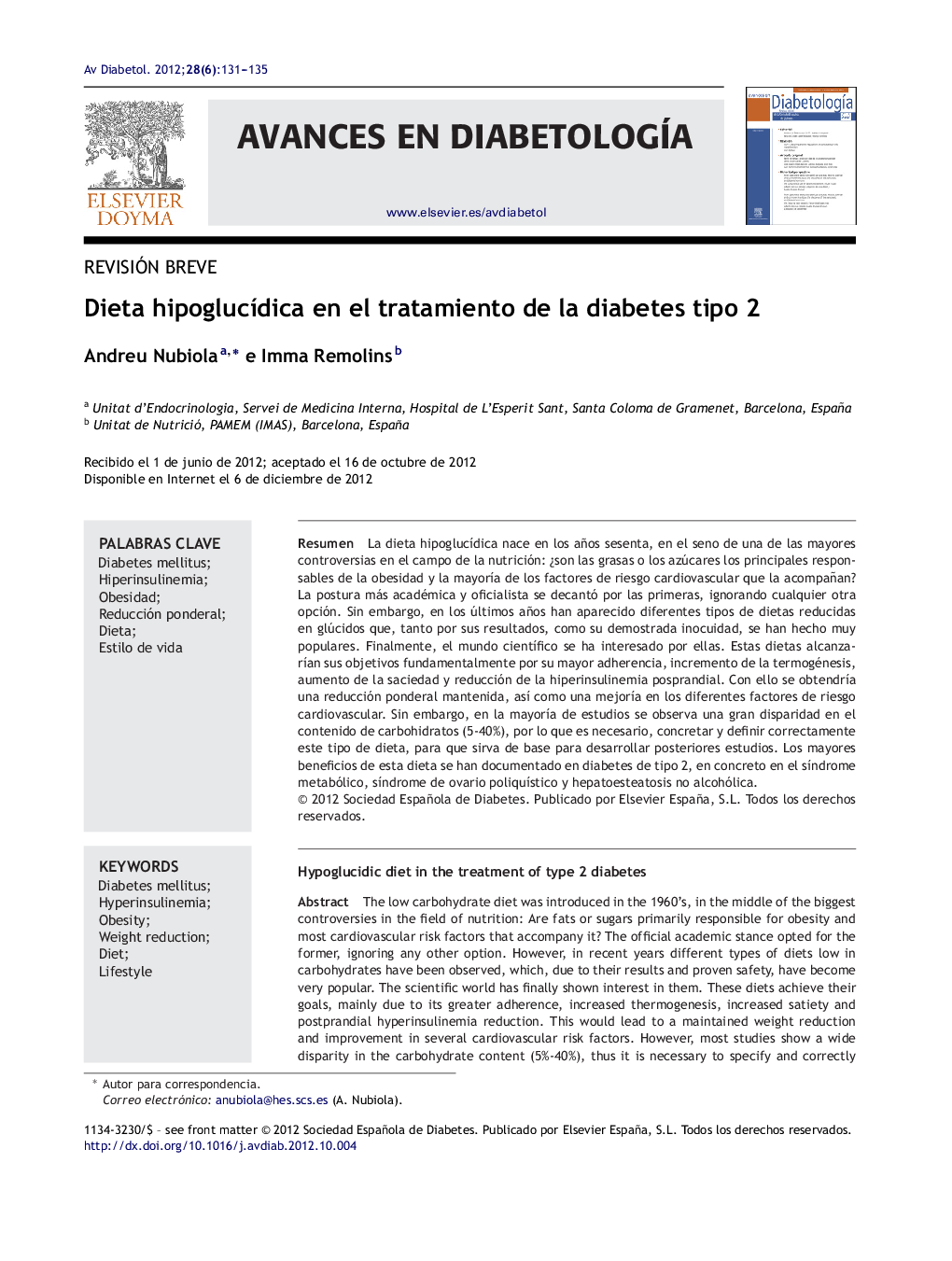| کد مقاله | کد نشریه | سال انتشار | مقاله انگلیسی | نسخه تمام متن |
|---|---|---|---|---|
| 3253690 | 1207145 | 2012 | 5 صفحه PDF | دانلود رایگان |

ResumenLa dieta hipoglucídica nace en los años sesenta, en el seno de una de las mayores controversias en el campo de la nutrición: ¿son las grasas o los azúcares los principales responsables de la obesidad y la mayoría de los factores de riesgo cardiovascular que la acompañan? La postura más académica y oficialista se decantó por las primeras, ignorando cualquier otra opción. Sin embargo, en los últimos años han aparecido diferentes tipos de dietas reducidas en glúcidos que, tanto por sus resultados, como su demostrada inocuidad, se han hecho muy populares. Finalmente, el mundo científico se ha interesado por ellas. Estas dietas alcanzarían sus objetivos fundamentalmente por su mayor adherencia, incremento de la termogénesis, aumento de la saciedad y reducción de la hiperinsulinemia posprandial. Con ello se obtendría una reducción ponderal mantenida, así como una mejoría en los diferentes factores de riesgo cardiovascular. Sin embargo, en la mayoría de estudios se observa una gran disparidad en el contenido de carbohidratos (5-40%), por lo que es necesario, concretar y definir correctamente este tipo de dieta, para que sirva de base para desarrollar posteriores estudios. Los mayores beneficios de esta dieta se han documentado en diabetes de tipo 2, en concreto en el síndrome metabólico, síndrome de ovario poliquístico y hepatoesteatosis no alcohólica.
The low carbohydrate diet was introduced in the 1960's, in the middle of the biggest controversies in the field of nutrition: Are fats or sugars primarily responsible for obesity and most cardiovascular risk factors that accompany it? The official academic stance opted for the former, ignoring any other option. However, in recent years different types of diets low in carbohydrates have been observed, which, due to their results and proven safety, have become very popular. The scientific world has finally shown interest in them. These diets achieve their goals, mainly due to its greater adherence, increased thermogenesis, increased satiety and postprandial hyperinsulinemia reduction. This would lead to a maintained weight reduction and improvement in several cardiovascular risk factors. However, most studies show a wide disparity in the carbohydrate content (5%-40%), thus it is necessary to specify and correctly define this type of diet, in order to serve as a basis for developing further studies. The greatest benefits of this diet have been documented in type 2 diabetes, particularly in the metabolic syndrome, polycystic ovary syndrome and non-alcoholic hepato-steatosis.
Journal: Avances en Diabetología - Volume 28, Issue 6, November–December 2012, Pages 131–135